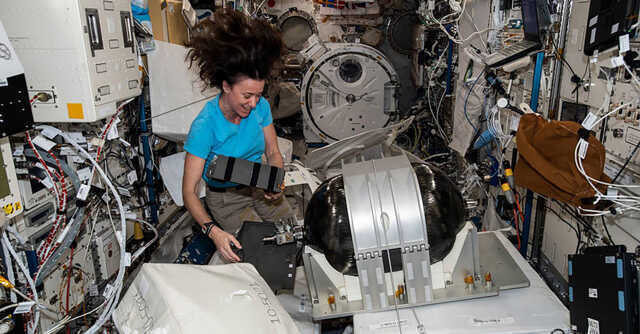
NASA, Intel want to find out how space travel will impact your health


Space travel has largely been restricted to professional astronauts until last year. The short but successful space trips by Jeff Bezos and Richard Branson this year are expected to open flood gates of space tourism in the near future.
With more people traveling to space, a better understanding of the potential side effects of space travel on the health of astronauts would go a long way in minimising those risks.
A joint astronaut health study by NASA's Frontier Development Laboratory (FDL) and Intel AI Mentors may have answers to some of the health-related queries associated with space travel.

The study focuses on understanding the physiological effects of radiation exposure on space travellers, especially on Mars, which is expected to be a major destination for long-duration space flights in the future.
Unlike Earth, Mars' surface is exposed to much higher levels of radiation due to the absence of a magnetic field and a thin atmosphere.
It is believed that cosmic radiation on Mars can penetrate several layers of steel and cause damage to human tissue during space flights, which can lead to long-term health issues including a heightened risk of cancer.

For their study, FDL created a causal machine learning (ML) model called CRISP 2.0 (causal and interference search platform) using Intel's Open Federated Learning (OpenFL) framework.
The objective of the model was to identify the biomarkers of cancer progression by using a cohort of radiation exposure data on mice and humans.
The challenge before them was the lack of access to the quality data that they required for the study. Though such data exists, it is protected and owned by different public institutions.

To overcome this challenge, FDL and Intel collaborated with a federation of institutes, such as NASA, NASA GeneLab, and Mayo Clinic. These institutes shared and trained the algorithm using the protected data they had in their respective locations without having to share the actual data with others.
Each collaborating institution was given access to the AI model for one round of AI training on their protected dataset. The model was then sent back to the central node for aggregation. After the aggregation, the model was reshared with other institutions.
According to FDL, CRISP 2.0 has improved the accuracy in predicting the genes that are more likely to be damaged by radiation and lead to cancer.

“With help from Intel, we formulated how causal machine learning models can operate on data across different locations without having to move the data between physical locations. We achieved our goal during FDL 2021 to use bespoke algorithms to better understand, improve and support astronaut health,” Paul Duckworth, FDL researcher said in a statement.
Patrick Foley, lead technical mentor at Intel noted that the project is a testament to the fact that anything can be achieved with collaboration between public and private institutions, and technologies such as federated learning can lead to major discoveries.
Foley believes this research will go on to drive better health outcomes for astronauts and enrich the lives of every person on Earth.

